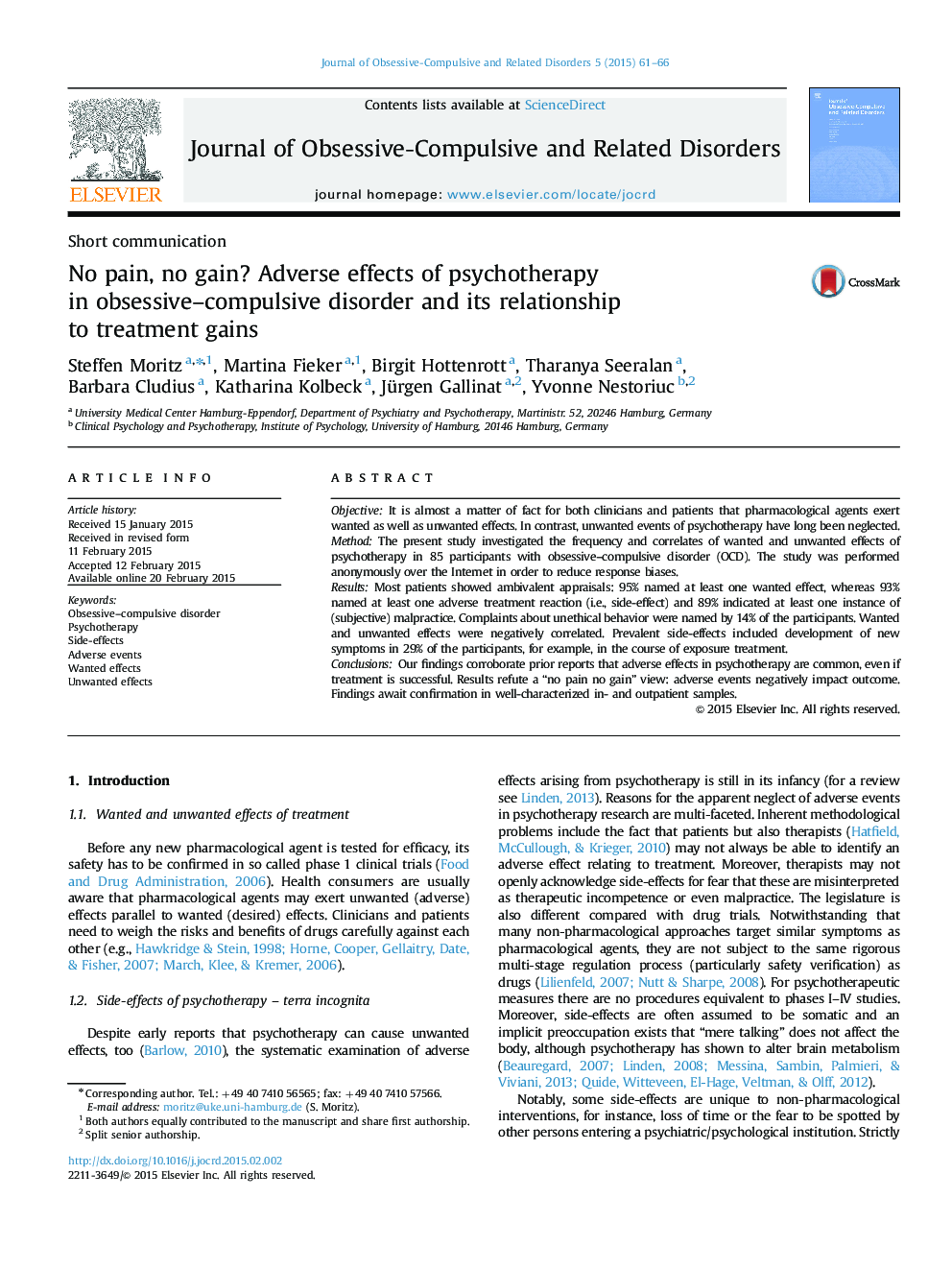| Article ID | Journal | Published Year | Pages | File Type |
|---|---|---|---|---|
| 912286 | Journal of Obsessive-Compulsive and Related Disorders | 2015 | 6 Pages |
•Psychotherapy, like pharmacological agents, may induce unwanted effects.•However, few empirical studies exist on the topic.•The frequency of unwanted effects of psychotherapy was examined in OCD.•Adverse effects were common and negatively correlated with subjective well-being.
ObjectiveIt is almost a matter of fact for both clinicians and patients that pharmacological agents exert wanted as well as unwanted effects. In contrast, unwanted events of psychotherapy have long been neglected.MethodThe present study investigated the frequency and correlates of wanted and unwanted effects of psychotherapy in 85 participants with obsessive–compulsive disorder (OCD). The study was performed anonymously over the Internet in order to reduce response biases.ResultsMost patients showed ambivalent appraisals: 95% named at least one wanted effect, whereas 93% named at least one adverse treatment reaction (i.e., side-effect) and 89% indicated at least one instance of (subjective) malpractice. Complaints about unethical behavior were named by 14% of the participants. Wanted and unwanted effects were negatively correlated. Prevalent side-effects included development of new symptoms in 29% of the participants, for example, in the course of exposure treatment.ConclusionsOur findings corroborate prior reports that adverse effects in psychotherapy are common, even if treatment is successful. Results refute a “no pain no gain” view: adverse events negatively impact outcome. Findings await confirmation in well-characterized in- and outpatient samples.
